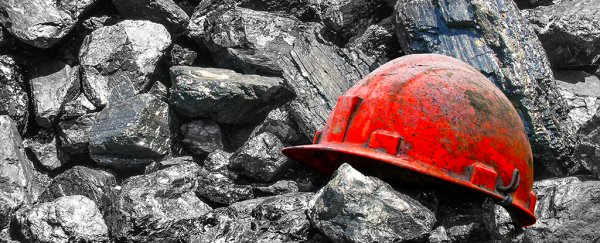History is a graveyard of lost industries. Many faded away for lack of customers.
Every now and then, a few get executed, their goods and services judged to pose unacceptable risks to society. Occasionally though, they just continue to go on killing – like in the case of the tobacco and coal industries.
Michigan Tech computer engineer Joshua Pearce argues the economic benefits of an industry should never outweigh the risks they pose to our lives. And when they do, we need to seriously consider sentencing the industry to economic 'death'.
Pearce recently conducted a study comparing the employment rates in the coal mining and tobacco industries with the risk of mortality each imposed on society.
These case studies form the basis of his argument that the political support for job numbers simply won't wash in the face of an industry's cost to human health.
Like beauty, a product or service's benefit is in the eye of the beholder. What some appreciate as useful, others see as unnecessarily dangerous, either to the environment or our lives.
Kid's chemistry kits were once praised as educational, for example, until perceived risks to the consumer forced them into extinction. Similarly, we no longer use radium to make paint glow, or chlorofluorocarbons (CFCs) to make fridges cold.
Few of us pause to consider the loss of jobs in the educational toy factories or radium painting workshops. In those cases, health and safety came before employment figures.
The question is, where should a government draw a line and say enough is enough? Pearce suggests the answer might lie in a simple balance of jobs versus lives.
"The vast majority of jobs and industries involve no human sacrifice," says Pearce.
"If we know that life trumps employment because you have to be alive to work, then for a company or industry to exist it must employ more people than it kills in a year."
Whether you agree with the weight of these measures or not, Pearce's logic is easy to follow.
If we accept that everybody has a right to a long, healthy existence, and assume we have a right to make money if it provides a benefit to society, there will be occasions where we need to make a hard choice – employment figures, or mortality rates.
Pearce outlines his case for using these metrics and then tallies the figures on each for two industries with a poor reputation when it comes to their effects on human lives.
According to the US Energy Information Administration, coal mining provides employment for just under 51,800 people across the nation, a figure that's dropping as profitability steadily sinks in the face of competition and environmental regulations.
In itself, coal mining is far safer today than in the past, where fatalities could be listed in their thousands. Only 15 people lost their lives on the job in 2017, and just 8 the year before that.
As a fossil fuel, coal's dark side is revealed. Estimates using U.S. Department of Health and Human Services data put the number of premature deaths due to poor air quality from coal combustion in the vicinity of just over 52,000 a year.
That means for every job coal mining provides, it claims a life. More or less.
The tobacco industry fares even worse.
The North American Industry Classification System gives us a figure of 124,342 jobs along the entire process chain, from tobacco agriculture to the point of sale of cigarettes, chewing tobacco, and cigars.
Adding up all of the deaths that result each year from both direct and passive smoking makes for a shocking figure of over half a million casualties. That's four deaths for every job.
To Pearce, the statistic just don't make sense.
"What this paper has done is set the minimum bar for industry existence," says Pearce.
"The study concludes both industries warrant corporate death penalties."
Axing tens of thousands of jobs wouldn't be high on any politician's list of mandates, no matter how many potential lives it would save.
But funding programs that help those employed in industries with a death sentence transition into new lines of work would be a huge first step into creating a healthier, fairer society.
"If the barrier is employing those specific coal workers, we can easily retrain them and put them to work in solar and it turns out they would even earn a little more money on average," says Pearce.
As logical as it might all sound, governments don't have the best track record when it comes to finding a balance between economics and the wellbeing of future populations. There's far more at work than simple cost-benefit analyses in big money industries like coal and tobacco.
But having bleak figures like these is still a sobering reminder that some wages cost society more than it can afford.
This research was published in Social Sciences.
